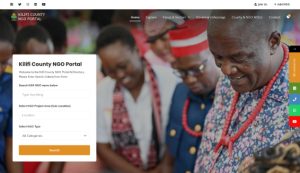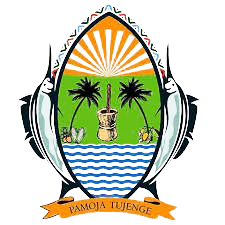Ensuring Excellence and Transparency in Education
The Quality Assurance and Accountability services provided by the Kilifi County Department of Education and ICT are dedicated to maintaining high standards of education and ensuring that educational institutions operate with transparency and integrity. Our focus is on monitoring, evaluating, and enhancing the quality of education while holding schools and educational programs accountable for their performance. Key components of our Quality Assurance and Accountability services include:
1. Development and Implementation of Quality Standards
We establish and enforce quality standards for educational institutions to ensure that they meet the required benchmarks for teaching, learning, and administrative practices. These standards cover various aspects of education, including curriculum delivery, student assessment, teacher qualifications, and school infrastructure. We work with schools to implement these standards and provide guidance on best practices.
2. Regular Inspections and Evaluations
Our services include conducting regular inspections and evaluations of schools and educational programs. These evaluations assess the effectiveness of teaching practices, the quality of learning environments, and the overall performance of educational institutions. We use a comprehensive evaluation framework to identify strengths and areas for improvement, and we provide feedback and recommendations to support continuous development.
3. Monitoring of Educational Outcomes
We monitor educational outcomes to track student performance and progress. This includes analyzing data on student achievement, attendance rates, and graduation rates. By monitoring these outcomes, we identify trends, address potential issues, and ensure that students are receiving the support they need to succeed academically.
4. Implementation of Performance Metrics
We establish performance metrics to evaluate the effectiveness of educational programs and initiatives. These metrics include indicators related to student learning, teacher performance, and school management. We use these metrics to measure progress, assess the impact of interventions, and make data-driven decisions to improve educational quality.
5. Feedback and Complaint Resolution
We provide mechanisms for students, parents, and staff to give feedback and lodge complaints regarding educational services and practices. This includes formal channels for submitting grievances and suggestions. We ensure that all feedback is reviewed and addressed in a timely manner, and we take appropriate actions to resolve issues and improve services.
6. Professional Development and Training
We offer professional development and training programs for educators and school administrators to enhance their skills and knowledge. This includes workshops, seminars, and certification courses on topics related to quality assurance, instructional practices, and school management. By investing in professional development, we support continuous improvement and ensure that staff are equipped to meet quality standards.
7. Transparency and Reporting
We maintain transparency by providing regular reports on the performance of educational institutions and the outcomes of quality assurance activities. These reports are shared with stakeholders, including the community, parents, and policymakers, to keep them informed about the state of education and the efforts being made to ensure quality and accountability.
8. Collaboration with Accreditation Bodies
We collaborate with national and regional accreditation bodies to align our quality assurance processes with established standards and guidelines. This includes working with accreditation agencies to conduct external reviews and to obtain accreditation for schools and educational programs. Collaboration ensures that our quality assurance practices meet recognized standards of excellence.
9. Development of Improvement Plans
Based on inspection and evaluation results, we work with schools to develop and implement improvement plans. These plans outline specific actions and strategies for addressing identified areas of weakness and for enhancing overall performance. We provide support and resources to help schools achieve their improvement goals.
10. Evaluation of Educational Policies and Programs
We regularly evaluate the effectiveness of educational policies and programs to ensure that they are achieving their intended objectives. This includes assessing the impact of policy changes, new initiatives, and funding allocations. We use evaluation results to refine policies, make necessary adjustments, and ensure that resources are used effectively to support educational quality.
The Kilifi County Department of Education and ICT is committed to ensuring excellence in education through robust quality assurance and accountability measures. By implementing rigorous standards, conducting regular evaluations, and fostering transparency, we aim to create an educational environment that supports student success, promotes continuous improvement, and maintains public trust.








